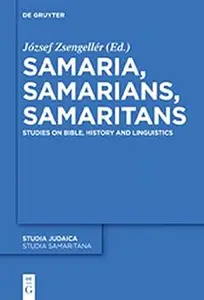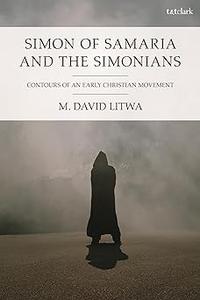
Free Download József Zsengellér, "Samaria, Samarians, Samaritans: Studies on Bible, History and Linguistics "
English | ISBN: 3110268043 | 2011 | 335 pages | PDF | 6 MB
Papers in this volume were presented at the seventh international conference of the Société d’Études Samaritaines held at the Reformed Theological Academy of Pápa, Hungary in July 17-25, 2008. The discussed Samaritan topics permeate different areas of biblical studies: The question of the Samaritan Pentateuch has a serious impact on the textual criticism of the Hebrew Bible. The pre-Samaritan text-type among the Dead Sea Scrolls, as well as the dating and isolation of Samaritan features of the Samaritan Pentateuch provide fresh and important data for gaining a better understanding of the composition of the Torah/Pentateuch. New reconstructions of the early history of the Samaritans have a great effect on the history of the Jewish people in the Persian and Hellenistic period. As a distinct group in the centuries around the turn of the Common Era in Palestine, Samaritans played an important role in the social and religious formation of early Judaism and early Christianity. Living for centuries under Islamic rule, Samaritans provide a good example of linguistic, cultural and religious developments experienced by ethnic and religious group in Islamic contexts.
